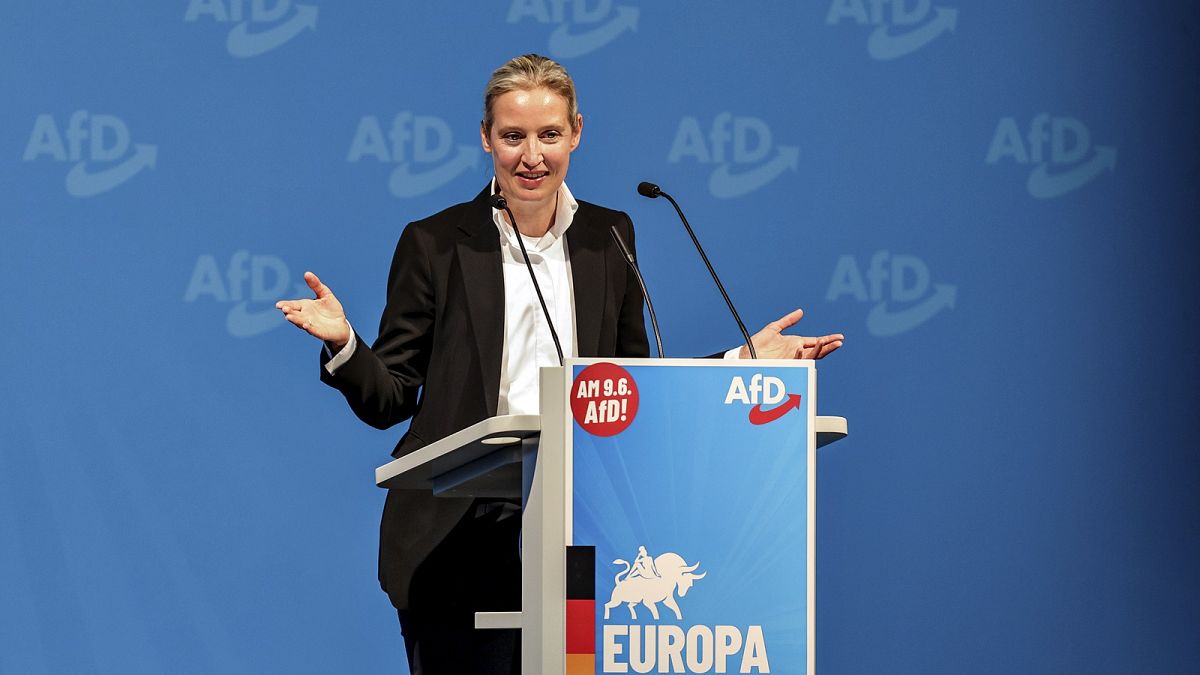The new group, called Europe of Sovereign Nations, immediately becomes the most radical force of the right in the European Parliament.
A new far-right group has been formed in the European Parliament under the name “Europe of Sovereign Nations” (ESN), gathering controversial parties that until today lacked political affiliation due to the radical character of their ideas.
The formation encompasses 25 MEPs from eight member states, enough to establish a formal group in the hemicycle and avoid the category of non-attached, which greatly reduces the relevance and speaking time of lawmakers.
Its composition and name were announced on Wednesday afternoon after a constitutive meeting in Brussels, ending days of mounting speculation. The news comes just two days after the emergence of Viktor Orbán’s Patriots for Europe and cements the reconfiguration of far-right forces in the wake of the June elections.
Despite their varied nature, the eight parties of ESN are glued together by a rabid opposition to migration management, the Green Deal, social progressivism and military assistance to Ukraine, setting them on a collision course with the mainstream.
Additionally, they all contest the project of European integration, under which countries delegate some of their competences to supranational institutions to build a political and economic union. Hence, the prominence of the term “sovereignty” in the title.
The Europe of Sovereign Nations is made up of:
- Germany’s Alternative for Germany (AfD): 14 MEPs
- Poland’s Confederation: 3 MEPs
- Bulgaria’s Revival: 3 MEPs
- France’s Reconquête: 1 MEP
- Slovakia’s Republika: 1 MEPs
- Czechia’s Freedom and Direct Democracy (SPD): 1 MEP
- Hungary’s Our Homeland Movement: 1 MEP
- Lithuania’s People and Justice Union: 1 MEP
Who’s who in the new group?
The leading voice in the group is AfD, dominating more than half of the seats in Europe of Sovereign Nations. One of its lawmakers, René Aust, has been named co-president. Stanisław Tyszka, from Confederation, is the other one.
“We have come together because we share the goal of having a significant impact on Europe’s political future through decisive action and strategic planning. This can only succeed collectively, as European history shows. Influence has always been wielded by those who had the courage to organize and act strategically,” Aust and Tyszka said.
“We choose this path not because it is easy, but because it is necessary to realize our shared vision of a strong, united, and forward-looking Europe of Fatherlands.”
Arguably one of Europe’s most notorious far-right parties, the AfD has been accused of promoting ethno-nationalist beliefs, spreading Islamophobia, engaging in historical revisionism and denying the existence of man-made climate change.
Earlier this year, the investigative journalism organisation Correctiv revealed that AfD officials had taken place in a meeting that discussed “remigration” plans to expel asylum seekers, foreign residents and “non-affiliated” German citizens from the country. The report caused enormous outrage and prompted weeks of mass protests.
In May, a German court labelled the AfD an official suspect of extremism, enabling intelligence services to monitor its activities and communications.
Later that month, AfD was expelled from the now-dissolved Identity and Democracy (ID) group after its then-leader, Maximillian Krah told an Italian newspaper that not everybody who wore an SS uniform was a war criminal. Separately, Krah’s offices were raided when his assistant was arrested on accusations of spying for the Chinese secret services.
AfD’s non-attached status fuelled weeks of speculation about a possible new group in Brussels, initially thought to be called “The Sovereignists.”
“The importance of this project is much greater than my own role; I am therefore satisfied and without any resentment,” Krah said, confirming his exclusion.
Other members include Poland’s Confederation (or Konfederacja), a coalition that is staunchly anti-LGBTQ, anti-feminism and anti-abortion. However, only three of the six MEPs elected under Confederation have joined the new group.
MEP Anna Bryłka said she would stay out due to the group’s “attitude” towards the Nord Stream pipelines that connect Europe to Russia, which Poland strongly opposes.
“At the same time, I declare cooperation with every European force that wants to stop creeping federalisation, mass and uncontrolled immigration, and the European Green Deal,” Bryłka said on social media, explaining her decision.
Europe of Sovereign Nations also encompasses Bulgaria’s Revival, Hungary’s Our Homeland Movement (MHM), Czechia’s Freedom and Direct Democracy (SPD), France’s Reconquête! and Slovakia’s Republika, all of which advocate ultra-nationalism and ultra-conservativism, and embrace nativist and xenophobic themes.
In some cases, like Revival, Our Homeland Movement and Republika, the parties have been associated with the anti-vaccination movement. A friendly stance towards Russia is another recurring theme among the ESN members.
All in all, the group can be easily considered the most radical formation in the European Parliament and will be immediately put under a cordon sanitaire by mainstream forces, depriving it of high-level positions in the institution.
The controversial SOS Romania party, which appeared to be a suitable candidate, has been rejected due to concerns raised by some delegations, including the AfD and Our Homeland Movement. Among other extreme proposals, SOS Romania wants to redesign Eastern Europe’s map to re-establish “Greater Romania,” the interwar kingdom.
Another notable omission is Spain’s The Party is Over (“Se Acabó La Fiesta“, or SALF), the self-proclaimed “anti-establishment” party led by social media influencer Luis “Alvise” Pérez. Despite being included in a map shared earlier on Wednesday by Hungarian MEP László Toroczkai, SALF did not join the far-right group.
This article has been updated.

